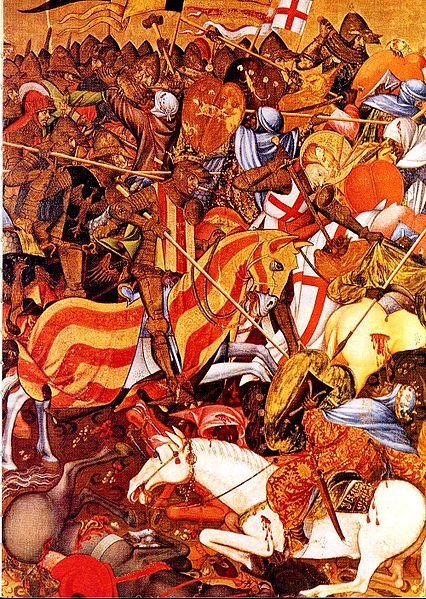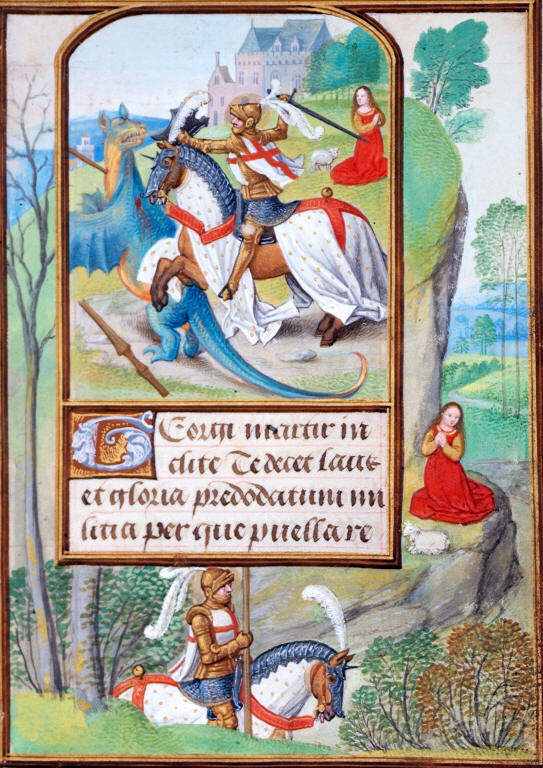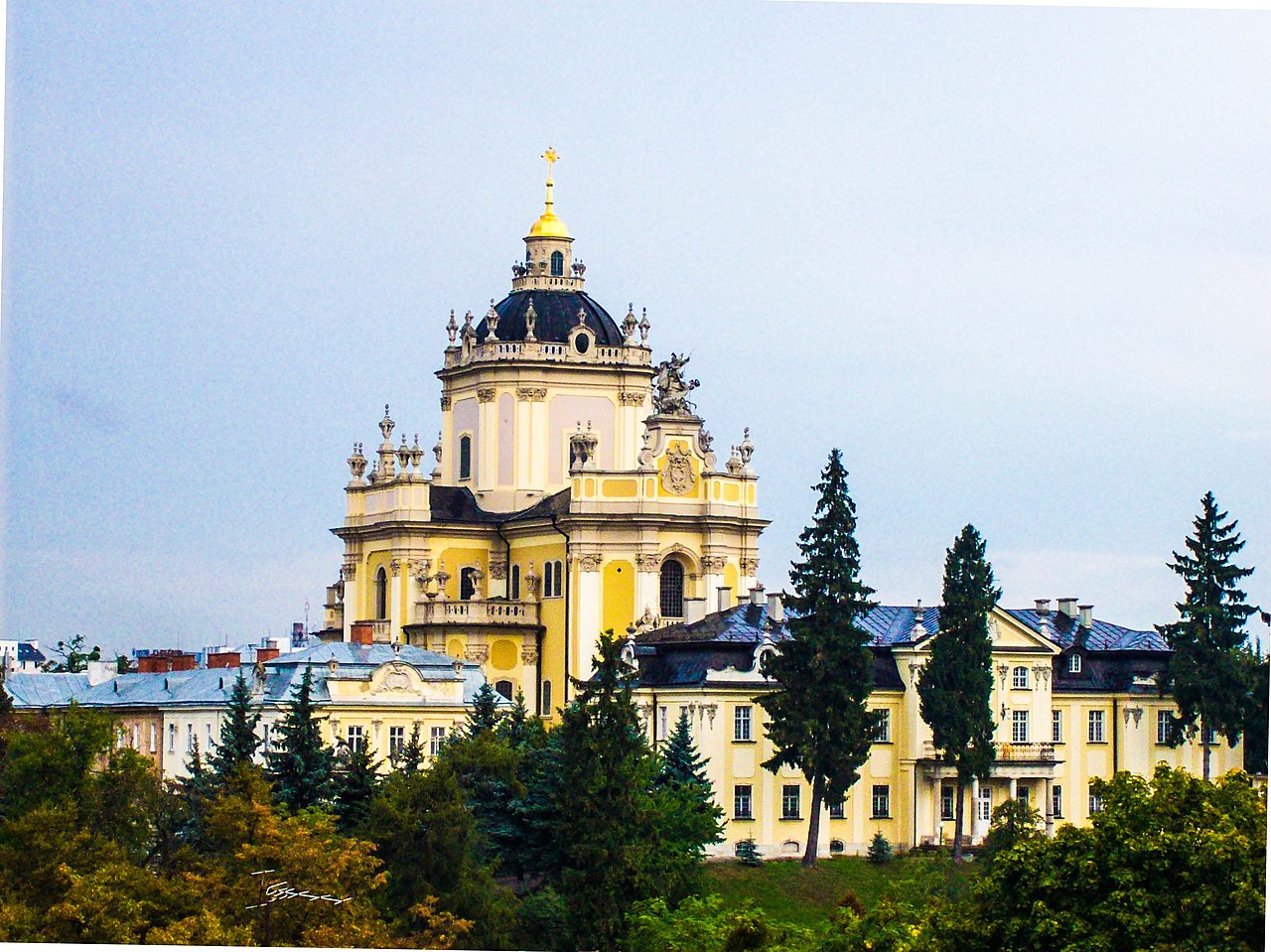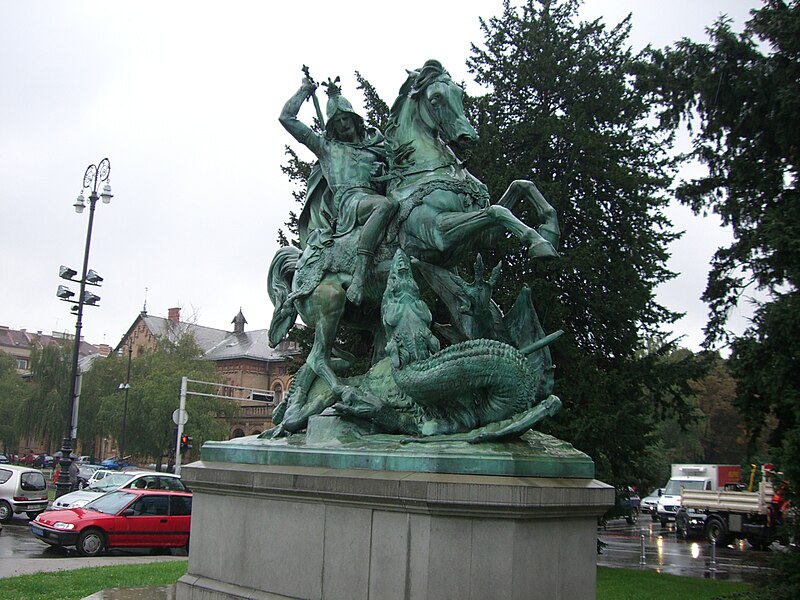The H&D team would like to wish all our readers not only in England and other parts of the UK, but also elsewhere in the world, a very happy St George’s Day.
St George was not English – as all our enemies will constantly remind us every April 23rd – we all know that; but he is the patron saint of England (although not the original patron saint of the Anglo-Saxon English – that is St Edmund, whose day is celebrated on November 20th) and we celebrate him and his day as such.
While St George’s Day – April 23rd – is mainly forgotten, ignored or even ridiculed by the liberal / left establishment, who by the way have no qualms about promoting everybody else’s national day, culture and heritage apart from ours, we nationalists always remember and celebrate it with pride.
Sadly, some of the old gang parties and their corrupt Westminster politicians are now trying to jump on the bandwagon and to try to hijack our saint’s day, and promote it as some form of multi-cultural/multi-racial fest, and make a mockery of the whole day. We should expect no less of them.
However, just to give you an example of how (not) multi-cultural and/or multi-racial St George’s Day has become, three of the H&D team, including the editor and assistant editor attended a pre – Saint George’s Day event last year, just outside of Preston city centre, organised by a servicemen’s group. Every single person there was White, and the majority of them were English, i.e. of Anglo-Saxon descent – even though Preston as a city is now well over 20% non-White.
As one of the greatest Englishmen of the 20th Century – Sir Oswald Mosley – said at a meeting in Manchester:
“In the lives of great nations comes the moment of decision, comes the moment of destiny; and this nation again and again in the great hours of fate has swept aside the little men of talk and delay and has decided to follow men and movements who say we go forward to action! Let who dare follow us in this hour.”
While many English (and British) nationalists feel a fierce national pride for the St George’s cross and the patron saint’s day, England in fact shares St George with a host of other countries and places. Each has its own unusual customs surrounding his feast day, including;

Spain – St George (San Jorge in Spanish or Sant Jordi in Catalan) is associated with several places in Spain especially in the north-east, where the army of Aragon was inspired by St George to defeat the Moors and their allies at the Battle of Alcoraz, leading to the ‘first Reconquista’ in the late 11th century. Some of the most colourful celebrations of the ‘Dia de Aragón‘ are in Barcelona. A public holiday is held in the area and has several similarities with Valentine’s Day, with roses and books being exchanged by lovers. Barcelona’s most popular street Las Ramblas becomes awash with flower and book sellers. Catalonia has managed to export the tradition as UNESCO adopted the date as World Book Day. And of course FC Barcelona have the St George cross in their club’s badge.
Ukraine – St George is traditionally venerated in Ukraine and associated with numerous patriotic symbols including St George’s Cathedral, Lviv (mother church of the Ukrainian Greek Catholic Church); the Kyivan Grand Prince Yaroslaw the Wise (978-1054); and numerous historic churches such as the 19th century wooden church of St George in the village of Zavorychi, Kyiv region, destroyed by Russian artillery during the first month of the invasion on 7th March 2022.
Russia – The Russian Orthodox Church uses the Julian Calendar so St George’s Day is celebrated on the same day but it is 6th May, not 23rd April. As well as this date Russians also mark the consecration of the Church of St George in Kyiv on 26th November. This was traditionally the time of year when peasants were permitted to move to a different landowner. While this tradition has died out the Ribbon of St George is still one of the highest Russian military honours, ironically mainly associated with Stalin’s Red Army which fought for atheistic Bolshevism. The black and orange striped ribbon is also used by civilians as a symbol of what Moscow terms the ‘Great Patriotic War’ against Germany. It has been seen again recently displayed by separatists and Russian occupation forces in Ukraine as a Putinist symbol, because of its ‘anti-nazi’, pro-Kremlin associations.
Albania – Albanians celebrate St George’s day by going out and lighting a large bonfire and playing around it as a sign of joy.
Bulgaria – Roasting a whole lamb is traditional on St George’s Day in Bulgaria as he is the patron saint of shepherds. It is seen as a day when evil enchantments can be broken and a blessed day when the saint blesses the crop and morning dew, so many walk in the early morning to wash their face in the fresh dew.
Croatia – Croats also use fire to mark St George’s Day which is considered the first day of Spring. In the Slavic tradition girls are dressed as goddesses in leaves and sing for locals.
Back in England normally many local pubs in White working class areas (and even a few in the middle class suburbs) would organise events to celebrate St George’s Day, but most would now be content with just putting out a few England flags (then taking them down the next day – so as not to offend!)
However, St George’s Day and the spirit of St George will be celebrated at H&D Towers (where two England flags fly proudly all the year round) where the editor and assistant editor and other members of team will raise a glass a two to our patron saint, to England and to the English, while there’s still a few of us left!
To quote England’s most famous playwright William Shakespeare, from his Henry V, first performed in 1598 but referring to the Battle of Agincourt, fought on the feast day of two other celebrated martyrs, the twins St Crispin and St Crispinian on 25th October 1415:
This story shall the good man teach his son;
And Crispin Crispian shall ne’er go by,
From this day to the ending of the world,
But we in it shall be rememberèd;
We few, we happy few, we band of brothers;
For he to-day that sheds his blood with me
Shall be my brother; be he ne’er so vile,
This day shall gentle his condition:
And gentlemen in England now a-bed
Shall think themselves accurs’d they were not here,
And hold their manhood’s cheap whiles any speaks
That fought with us upon Saint Crispin’s day.
And finally to quote from a song now officially banned from the football terraces of England – but still sung anyway, when and where non-Woke England football supporters can get away with it!
Keep St. George in my heart keep me English,
Keep St. George in my heart I pray,
Keep St. George in my heart keep me English,
Keep me English till my dying day!
No Surrender, No Surrender,
No surrender to the I-R-A!






